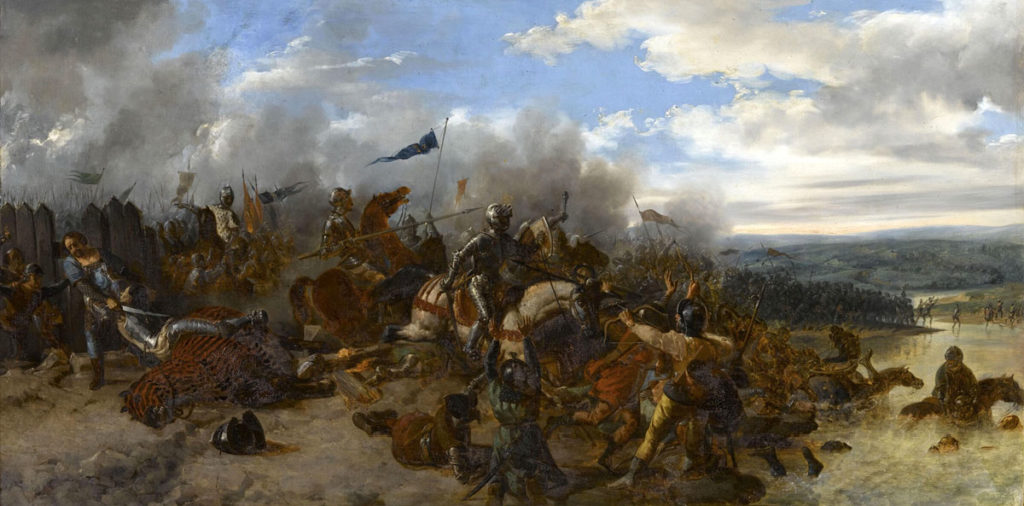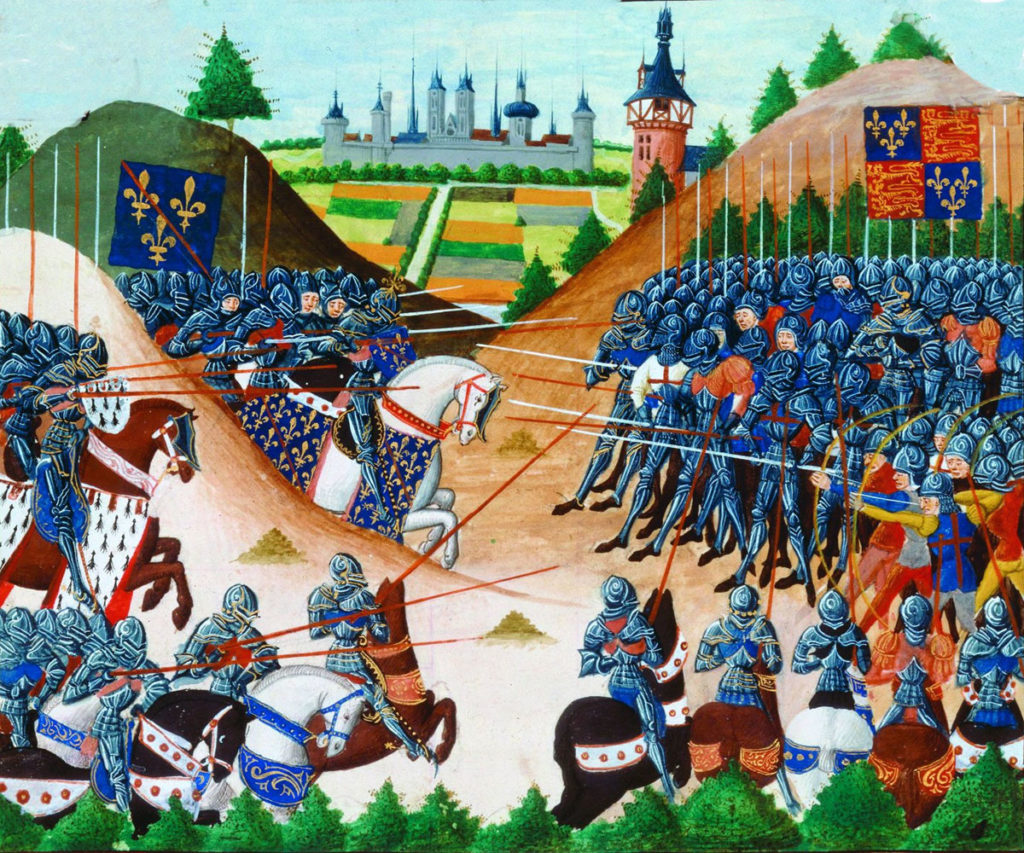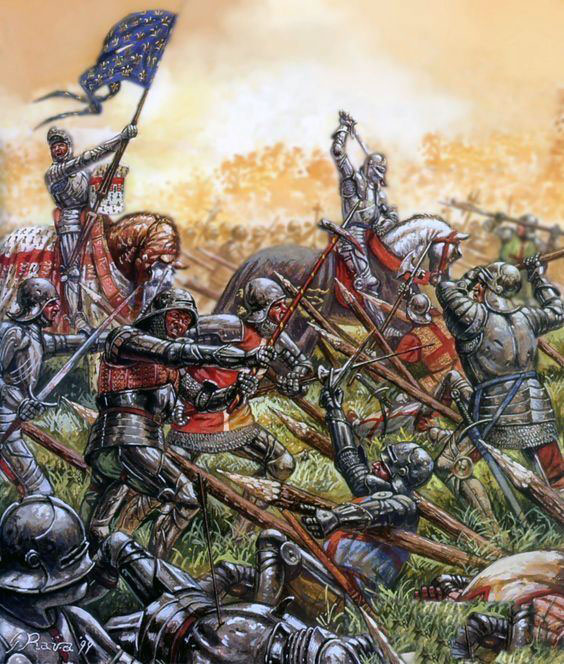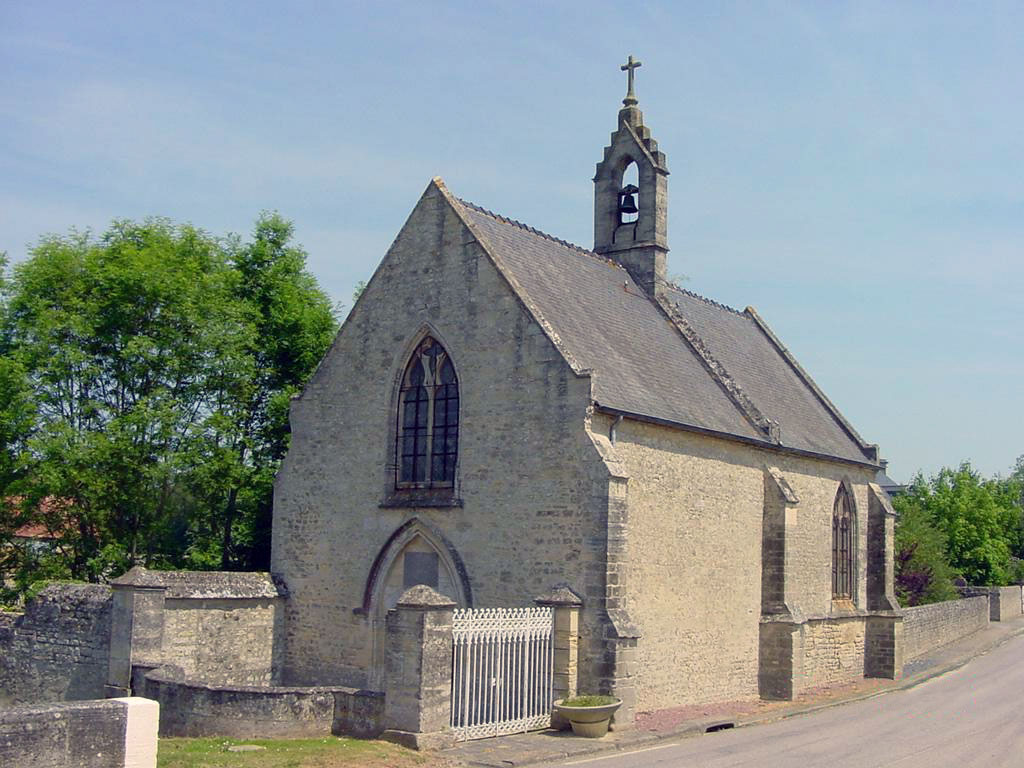The French victory over the English on 15th April 1450 in the Hundred Years War that destroyed the last English army in Normandy
The previous battle of the Hundred Years War is the Battle of Patay
The next battle of the Hundred Years War is the Battle of Castillon
War: Hundred Years War.
Date of the Battle of Formigny: 15th April 1450
Place of the Battle of Formigny: In France, near the town of Bayeux on the Normandy coast.
Combatants at the Battle of Formigny: French army against an English army.
Commanders at the Battle of Formigny: The Comte de Clermont, son of the Duc de Bourbon, commanded the French army that confronted the English in the first part of the battle. The constable of France, Arthur, Comte de Richemont, commanded the French force that subsequently came up on the English flank.
Sir Thomas Kyriell commanded the English army.
Size of the armies at the Battle of Formigny: The French army of Clermont numbered around 3,000 men. The French army of the constable de Richemont numbered around 2,000. The English army numbered around 3,800 men.
Uniforms, arms and equipment at the Battle of Formigny: Knights increasingly wore steel plate armour with visored helmets. Their weapons were lance, shield, sword, various forms of mace or club and dagger. Many carried two-handed swords in battle. Each knight wore his coat of arms on his surcoat and shield.
The English archers carried a powerful bow, capable of many aimed shots a minute.
For hand-to-hand combat archers carried swords, daggers, hatchets and war hammers. They wore jackets and loose hose. Archers’ headgear was a skull cap either of boiled leather or wickerwork ribbed with a steel frame.
By the time of the Battle of Formigny, artillery was a well-established weapon of war frequently used in sieges and now increasingly used on the battlefield, as at Formigny.
A newly introduced weapon was the bill, a long-handled chopping blade.
Winner of the Battle of Formigny: The French decisively defeated the English, capturing Kyriell and killing or dispersing his army.
Events leading to the Battle of Formigny:
In mid-1449, King Charles VII of France began the methodical re-conquest of Normandy from the occupying English.
Four French armies moved into the south, east and west of Normandy.
In October 1449, the capital of the Duchy, Rouen, after a strenuous assault by the French army of Dunois, accompanied by the French king, was surrendered by the Earl of Somerset, who took his surviving troops to the west Norman town of Caen, leaving Lord Talbot as a hostage with the French.
In December 1449, the French captured the port of Harfleur from the English, largely through bombardment by the cannon commanded by Jean Bureau, the renowned French artillerist.
Honfleur was taken by the French in January 1450.
The French successes in retaking large areas of Normandy, held by the English for some thirty years, caused a public outcry in England.
An English army of 2,500 men, commanded by the experienced Sir Thomas Kyriell, assembled at Portsmouth and sailed for Normandy in March 1450, landing at Cherbourg on 15th March 1450.
Kyriell’s orders were to re-enforce the English garrison in Bayeux, threatened by the French.
On his march to Bayeux, Kyriell halted to attack the French-held town of Valognes, receiving re-enforcements from the Duke of Somerset, that brought his army to 4,000 men.
Kyriell took Valognes on 18th April 1450 and resumed his march to Bayeux.
This delay enabled the French armies to converge on Kyriell’s force.
The Comte de Clermont, with his army of 3,000 men, advanced to Carentan, a town near to Kyriell’s route along the Norman coast from Valognes to Bayeux.
The constable, Arthur de Richemont with his 2,000 men, was further away at Coutance, on the south-western coast of the Cherbourg peninsula.
As the English army passed by Carentan, it was compelled to cross the estuary of the River Vire by a causeway several miles long, only accessible at low tide.
Clermont did not interfere with Kyriell’s crossing, but followed him up at a distance.
The constable marched from Coutance towards Bayeux and on 14th April 1450 reached St Lo.
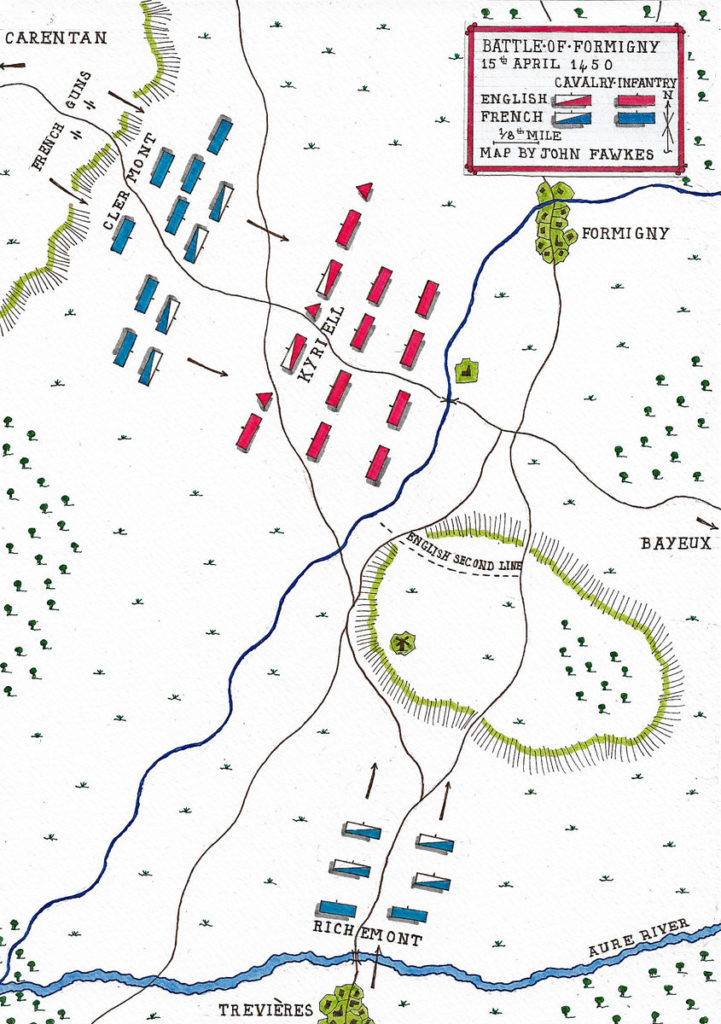
Battle of Formigny:
On the night of 14th April 1450, Kyriell’s English army camped at the village of Formigny, 10 miles short of Bayeux.
Instead of continuing his march the next day, Kyriell lingered at Formigny, while his subordinate, Sir Matthew Gough rode on to Bayeux.
It seems likely that Kyriell intended to give battle to Clermont’s army, perhaps being unaware of the approach from the south-west of the constable’s French force, or expecting to defeat Clermont before the constable could march up.
During the evening, Clermont sent word to the constable at St Lo of the presence of the English army at Formigny, requesting the constable to support Clermont in his attack.
The constable marched from St Lo taking the northern road to Formigny.
Formigny lies in a shallow valley on the Bayeux road, at the point where a brook crosses the road under a stone bridge.
Aware of Clermont’s approach, Kyriell formed his army across the road to the north-west of the bridge.
Kyriell’s army comprised only some 900 men-at-arms, including the reinforcements brought by Gough.
These men-at-arms, dismounted, formed a line across the road with clumps of archers on each flank and in the centre.
English archers formed a second line, with a third line of billmen.
The archers of the front line embedded sharpened stakes and dug a shallow trench to their front.
Clermont’s army marched into sight of the English and halted, forming three lines of battle.
Clermont’s inclination was to delay any attack until the constable’s force arrived on the battlefield, but his caution was overborn by the younger nobles in his army, who had no recollection of the disaster of Agincourt and Clermont was persuaded to attack.
The French men-at-arms advanced down the road on foot, while mounted men assaulted the English flanks, but the French were unable to make any progress against the fire of the English archers, during a struggle of two hours duration.
By this time Jean Bureau had arrived on the battlefield with his artillery.
Two culverins or heavy guns were pulled into position and began a galling fire on the English line.
The English archers broke ranks and charged the French guns, overwhelming the gunners and dragging the guns back to the English line.
The French men-at-arms and archers began to fall back and leave the battlefield.
Before Kyriell’s men could complete the defeat of Clermont’s army, both sides became aware that a new French force, the constable’s, was marching onto the battlefield from the south-west, on the far side of the brook.
The constable crossed the brook and conferred with Clermont.
The two French generals agreed that Clermont would renew his assault while the constable’s men attacked the English from the south-west.
Kyriell re-formed his line in a right angle to face both sections of the combined French army, but the English were forced to give ground, until they made their final stand around the bridge, before being overwhelmed and driven in defeat from the field.
Sir Matthew Gough, who had returned from Bayeux to fight in the battle, cut his way out and escaped, but Kyriell was captured.
One party of some 500 English archers fought in a garden by the side of the brook until they were overcome.
The English army was annihilated.
Casualties at the Battle of Formigny:
French records claim that the English dead were buried in fourteen grave pits and numbered 3,774.
It seems likely that the dead of both sides will have been buried in these pits, with little possibility of identifying the nationality of many of them.
It is likely that, as in most medieval battles, the loser’s casualties were significantly higher than the victor’s and that in any case the English army, the last in Normandy, ceased to exist.
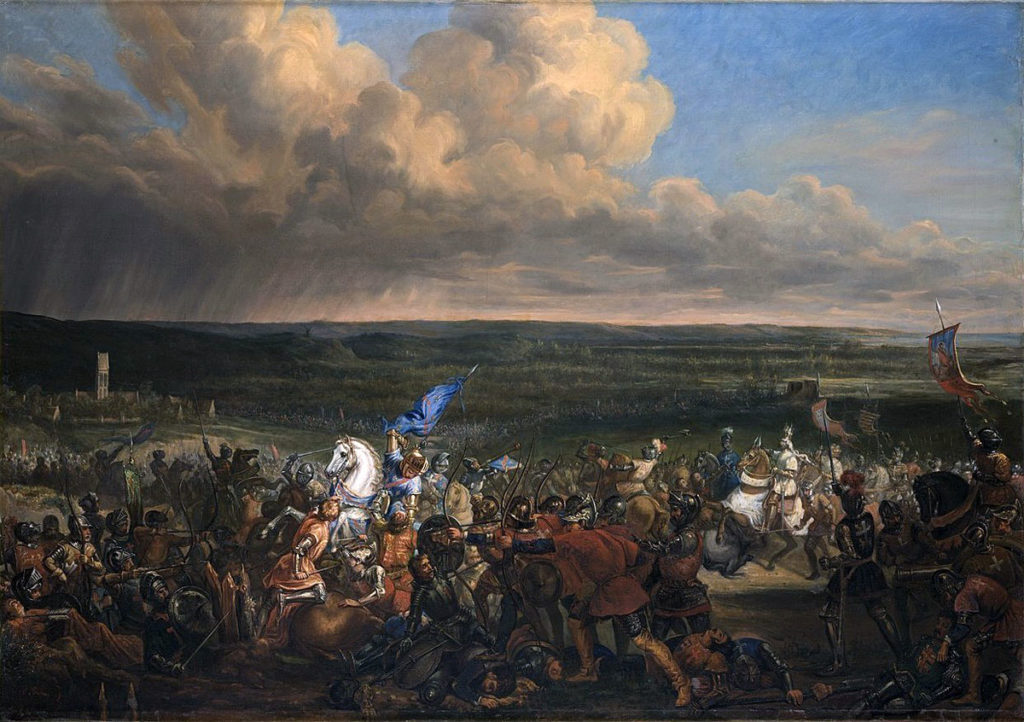
Follow-up to the Battle of Formigny:
With the news that England’s army in Normandy had been destroyed by the French at the Battle of Formigny, a new army of 3,000 men was raised in England, to be led by Sir John Fastolf. But this took too long to influence events in Normandy.
Following their success at the Battle of Formigny, the French took the towns of Vire, Bayeux and Avranches, before turning to the important English citadel of Caen.
A large French army gathered to besiege the Duke of Somerset in Caen.
Three weeks of bombardment by the expert cannoneer brothers, Jean and Gaspard Bureau, was sufficient to force the surrender of the English garrison in Caen.
The final successes that brought Normandy wholly back under French control were the taking of Falaise and Cherbourg.
King Henry V’s conquest of the duchy was ended.
Anecdotes and Traditions from the Battle of Formigny:
- The Frenchman Pierre de Brezé distinguished himself in rallying Clermont’s failing attack at the end of the first part of the battle.
- As the English army was overwhelmed some 500 English archers made a last stand in a field next to the brook before being largely wiped out.
- The area of the English army’s final stand by the stone bridge was known for several centuries as ‘le Champ Anglais’.
- A chapel commemorating this important French victory over the English invader was erected by the Comte de Clermont near the Formigny stone bridge in 1486.
References for the Battle of Formigny:
The Art of War in the Middle Ages Volume Two by Sir Charles Oman..
The Hundred Years War by Burne
British Battles by Grant.
The previous battle of the Hundred Years War is the Battle of Patay
The next battle of the Hundred Years War is the Battle of Castillon
